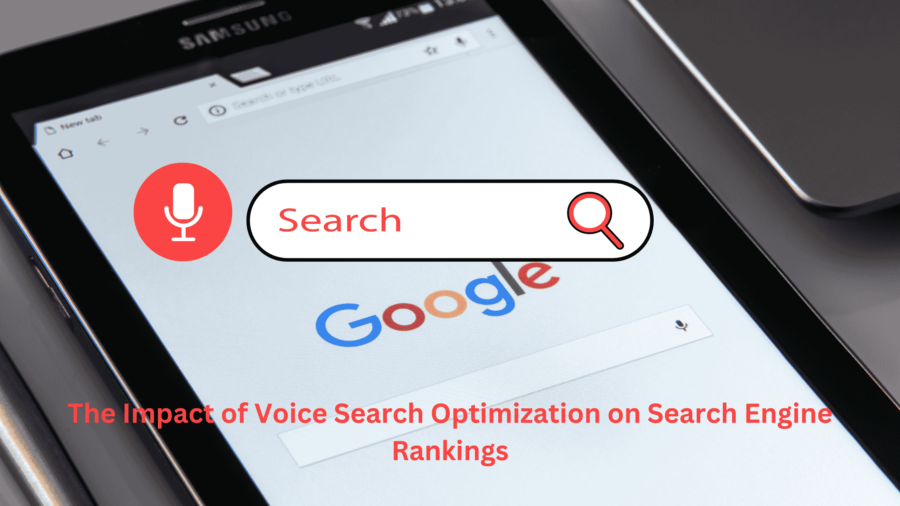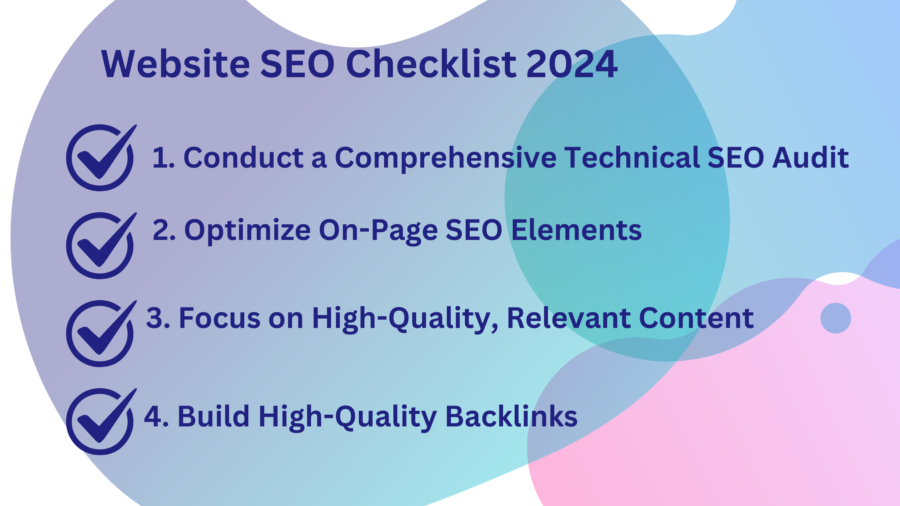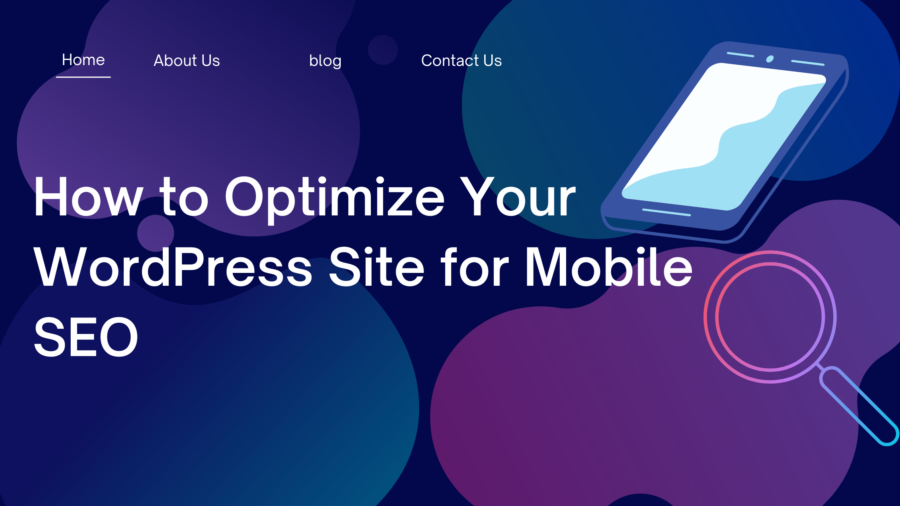In today’s digital world, knowing SEO is vital for any organization or anyone who wants to make an impression online. Whether you’re a digital marketer, a small business owner, or a blogger, how you approach SEO can significantly impact your online presence. This blog post will guide you through common SEO mistakes, explore their impacts, and provide solutions to help you achieve digital success. Let’s uncover the secrets to optimizing your SEO strategy and boosting your online visibility.
The Importance of SEO for Digital Success
SEO, or Search Engine Optimization, is the backbone of online visibility. It’s the process that ensures your website reaches the right people at the right time. For digital marketers, small business owners, and bloggers, SEO is not just an optional strategy—it’s a necessity. A well-executed SEO plan can distinguish between being discovered by potential customers and being lost in the vast digital ocean.
For organizations, SEO is more than just increasing visitors. It forms the foundation for brand authority, customer trust, and market credibility. A strong SEO strategy can help attract more visitors to your website, increase engagement, and convert leads into sales. This is especially crucial for small businesses relying heavily on online channels to reach their target audience.
Bloggers, too, can harness the power of SEO to expand their readership and influence. By optimizing their content for search engines, bloggers can ensure that their posts reach a wider audience, increasing engagement and potentially monetizing their content. Understanding the role of SEO in digital success is the first step in avoiding common SEO pitfalls.
Common SEO Mistakes
Navigating the SEO world can be tricky; even the most seasoned professionals make seo mistakes. Here are ten common SEO errors digital marketers, small business owners, and bloggers should avoid:
- Ignoring Keyword Research
Failure to undertake thorough keyword research is a standard error. You need to understand traffic, not what it is, to ensure you get what you are searching for. Keywords are the bridge that connects your content with user intent.
- Overloading with Keywords
While using keywords is essential, stuffing your content with them can lead to penalties from search engines. Keyword stuffing makes content unnatural and hard to read, pushing users away rather than engaging them.
- Neglecting Mobile Optimization
With more people accessing the internet via mobile devices, not optimizing your website for mobile can severely impact your SEO. A mobile-friendly website enhances the user experience and increases your search engine rating.
- Overlooking Meta Tags
Meta tags, including title tags and meta descriptions, are critical for conveying the essence of your content to search engines. Ignoring them means taking advantage of opportunities to improve click-through rates.
- Ignoring Page Load Speed
Slow website load times annoy users, resulting in higher bounce rates. Search engines favour fast-loading sites, so paying attention to this aspect could cost you valuable traffic.
- Skipping Analytics Monitoring
Not tracking your site’s performance through analytics tools can prevent you from understanding what works and doesn’t. Regular monitoring is essential for optimizing your SEO approach.
- Producing Low-Quality Content
Content is king, but only if it is valuable and timely. Publishing low-quality content may hurt your reputation and rank. Search engines prioritize content that meets user needs and demonstrates authority.
- Underestimating the Power of Backlinks
Backlinks from respected sites signify trustworthiness for search engines. Ignoring backlink strategies can hinder your SEO efforts and limit your site’s authority.
- Forgetting About Local SEO
For small businesses, local SEO is crucial. Failing to optimize for local searches means missing out on nearby customers ready to buy.
- Not Keeping Up with SEO Trends
SEO is continuously evolving, so what worked yesterday may not work today. Keeping up with the newest trends and algorithm modifications is critical.
Impact Analysis
Every SEO mistake carries potential consequences. Here’s a look at how these errors can affect your website’s performance:
Keyword Missteps
Ignoring keyword research or overloading keywords can lead to poor visibility. Engines will only understand your will’s relevance with proper keywords, leading to higher rankings and reduced traffic.
Neglecting Mobile Optimization
A lack of mobile optimization results in a poor user experience, high bounce rates, and lower rankings. Given the increasing number of mobile users, this mistake can significantly limit your reach.
Meta Tags and Page Speed
Overlooking meta tags can reduce click-through rates, while slow page speeds increase bounce rates. Both factors are critical ranking signals directly affecting your visibility and user engagement.
Solution-Oriented Approach
To rectify these seo mistakes, consider implementing the following solutions:
Conduct Thorough Keyword Research
Use tools such as Google Keyword Planner to find relevant keywords. Focus on long-tail keywords that correspond to user intent and include them naturally in your content.
Optimize for Mobile
Ensure your website is responsive and mobile-friendly. Test your site on various devices to guarantee a seamless user experience across platforms.
Enhance Meta Tags and Improve Page Speed
Create appealing title tags and meta descriptions that appropriately describe your content. Use tools such as Google PageSpeed Insights to analyze and optimize your website’s loading time.
Leverage Analytics and Prioritize High-Quality Content
Regularly monitor your site’s performance using analytics tools. Create content that addresses your audience’s needs and provides valuable insights, positioning you as an authority in your field.
Build a Strong Backlink Strategy
Focus on earning high-quality backlinks from reputable sites. Consider guest blogging or collaborating with other industry leaders to expand your reach.
Stay Updated with SEO Trends
Follow industry blogs and attend webinars to stay informed about the latest SEO trends and algorithm updates. Adapt your plan accordingly to maintain a competitive advantage.
Case Studies
Let’s explore real-life examples of businesses that successfully turned their SEO strategies around:
Case Study 1
A small online retailer struggled with poor traffic due to outdated SEO practices. By revamping their keyword strategy and optimizing for mobile, they saw a 40% increase in organic traffic within three months.
Case Study 2
A popular blog experienced declining readership. After focusing on content quality and acquiring backlinks, it regained its audience’s trust and improved its search rankings.
Case Study 3
A local restaurant chain needed to leverage local SEO. By optimizing their Google My Business profile and incorporating local keywords, they attracted more foot traffic and increased bookings by 25%.
Conclusion
Avoiding common SEO mistakes is crucial for digital success. By understanding the impact of these errors and implementing the suggested solutions, you can improve your website’s visibility, traffic, and conversion rates.
Continual improvement is critical. Assess your current SEO practices, apply the strategies discussed, and stay informed about industry trends. For those ready to take the next step, evaluating your SEO strategy is essential to achieving long-term success.
Frequently Asked Questions
1. 1. What is SEO, and why does it matter?
SEO (Search Engine Optimization) involves optimizing your website to rank higher on search engine results pages, increasing visibility and getting more organic traffic. It’s important because it helps businesses reach their target audience and improve their online presence.
2. How does mobile optimization impact SEO?
Mobile optimization ensures a website performs well on mobile devices, providing a better user experience. Search engines prefer mobile-friendly sites in their ranks. Therefore, mobile optimization is critical for SEO success.
3. What are backlinks, and why are they important?
Backlinks are links that connect other websites to your own. They are crucial because they tell search engines that your website is trustworthy and authoritative, which might boost your search ranking.
4. Why is page load speed crucial in SEO?
Page loading time is a ranking criterion utilized by search engines. Fast-loading sites provide a better user experience and are favoured by search engines, leading to potentially higher rankings and increased traffic.
5. What are long-tail keywords, and how should I use them?
Long-tail keywords refer to lengthier and more precise keyword phrases. They typically have less competition and higher conversion rates. Incorporate them naturally into your content to attract targeted traffic.
6. How often should I update my SEO strategy?
SEO constantly evolves, so you must review and update your strategy regularly. Stay informed about industry trends and adjust your approach to maintain or improve your search rankings.
7. Can I do SEO on my own or hire a professional?
While you can perform basic SEO on your own, hiring a professional can be beneficial for more advanced strategies and technical optimizations. When making a decision, consider your budget, goals, and expertise.












